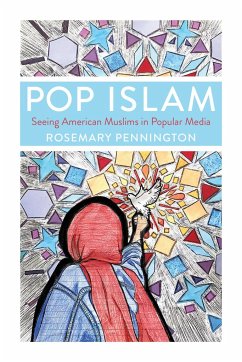"Reveals how portrayals of Muslims in American popular media fall into a "trap of visibility," where moving beyond negative tropes can cause creators and audiences to unintentionally amplify those same stereotypes. "This manuscript takes us on a timely and much-needed tour which helps us explore the complexity, dynamism, and nuances of modern Muslim identities, as they are being shaped by, while also shaping, various forms of mediated popular culture, ranging from comic books to fashion magazines and reality TV shows, among others. In doing so, it unpacks the complexity of the varied, and oftentimes intersecting and overlapping, roles of Muslims in contemporary societies, as both "producers" and "consumers" of these varied forms of mediated popular culture simultaneously."--Sahar Khamis, coauthor of Islam Dot Com: Contemporary Islamic Discourses in Cyberspace In the West, Islam and Muslim life have been imagined to exist in an antithetical state to popular culture--a frozen faith unable to engage with the dynamic way popular culture shifts over time, its followers reduced to tropes of terrorism and enemies of the state. Pop Islam: Seeing American Muslims in Popular Media traces narratives found in contemporary American comic books, scripted and reality television, fashion magazines, comedy routines, and movies to understand how they reveal nuanced Muslim identities to American audiences, even as their accessibility obscures their diversity. Rosemary Pennington argues that even as American Muslims have become more visible in popular media and created space for themselves in everything from magazines to prime-time television to social media, this move toward "being seen" can reinforce fixed ideas of what it means to be Muslim. To truly understand where American narratives of who Muslims are come from, we must engage with popular media while also considering who is allowed to be seen there-and why"--








